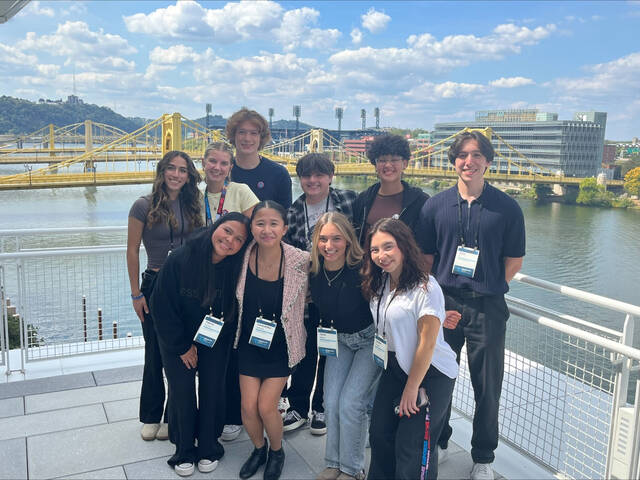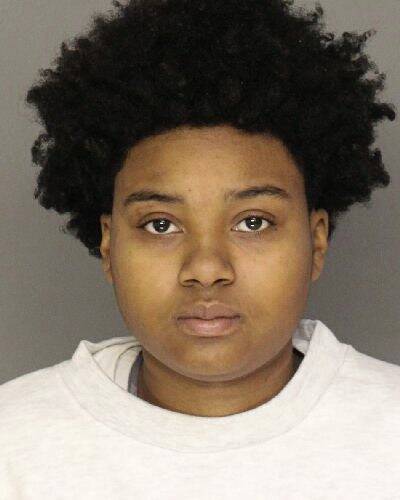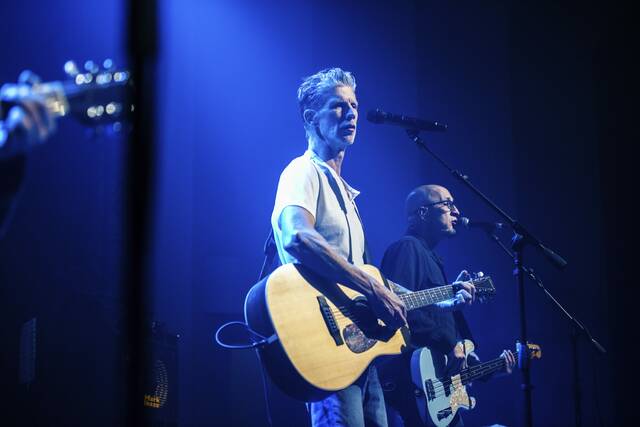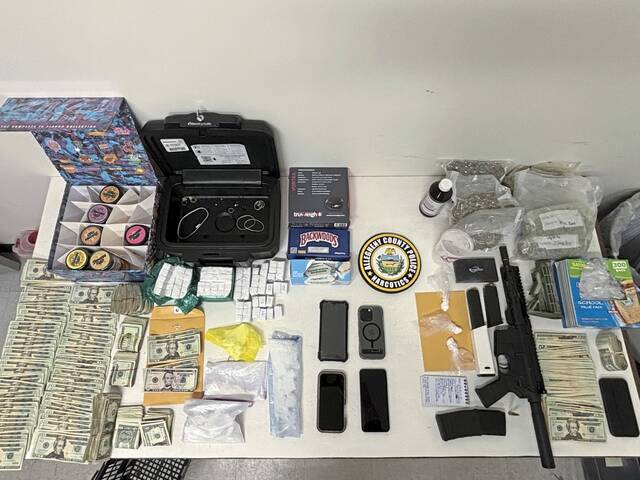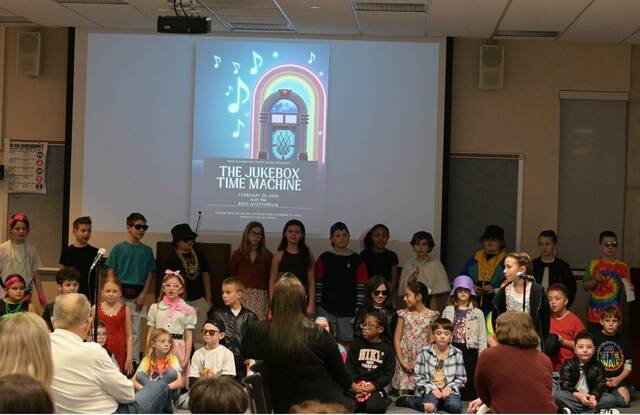Editor’s note: The following story was submitted for the Shaler Area Student Section, a collaboration between TribLive and The Oracle, the student newspaper of Shaler Area High School.
On Sept. 15, hundreds of middle and high school students joined leaders, activists, educators and survivors from around the world for the 2025 Eradicate Hate Global Summit.
The annual event took place at the David L. Lawrence Convention Center in Pittsburgh and focused on fighting hate-fueled violence and creating safer and more inclusive communities.
Day one of the event, the Student Summit, was designed to inspire, prepare and empower young people to stand up against hate.
The most powerful part of the summit wasn’t led by experts, it was led by students.
Catlyn DiPasquale, a librarian at Shaler Area High School, took the lead once again to get a group of students to the gathering. The summit means a lot to her, and she believes it’s important for young people to be involved in such a large movement.
“They don’t have big streams of income. They don’t have voting rights yet. They don’t have ways to make their voices heard, and yet I think that young people have a lot of power — but sometimes they’re just not taken seriously. So I think it is important to give them the chance to have the floor and the chance to talk about the things they care about,” she said.
The day began with a welcome from local and national leaders, followed by a screening of “Repairing the World,” a documentary about the 2018 Tree of Life synagogue shooting. Students then heard directly from survivors and family members, sparking heartfelt discussions at each table.
Speaker Pardeep Singh Kaleka, co-director adviser of Not in Our Town and a survivor of a shooting at a Sikh temple in Wisconsin in 2012, stood out the most to the group of Shaler Area students who attended. Not in Our Town is a movement to stop hate, racism and bullying and to build safe, inclusive communities.
Kaleka’s father was killed in that 2012 attack. His powerful words and real-life stories stuck with the students, leaving an impact on everyone in the room. He talked about how society can’t keep hiding hate crimes and events happening all around us from its children. His 5-year-old son watched the documentary on the Tree of Life and walked away saying how it started off bad but ended really good.
He also told the story of how he had the opportunity to ask a young girl, who was near his father when he died, what his last words were. His father’s last word was “prayer,” and Kaleka believed the young people sitting there were the answer to his prayers. His brutal honesty about what is happening in the world now was inspiring.
“He was really good at turning such a traumatic thing into something inspiring. You could see the pain he felt in his face and through the way he spoke, but instead he used it to make our world a better place so no one has to go through what he did. That was such a powerful thing,” Shaler Area senior Abby Tepshich said.
The summit wasn’t just about listening, it also was about doing. Students learned about real things they can bring back to their schools such as anti-hate education tool kits, warning-sign guides and grants for starting new initiatives.
One highlight of the day was the “Idea Sprint.” Over lunch, students from different schools worked together and brainstormed ways to create more inclusive environments. Some planned awareness campaigns, others imagined school clubs and others designed projects to reach younger students.
“I think it was nice to see how other schools are treating (anti-hate activities) and how other kids view their school district,” Shaler Area senior Alex Ai said.
Before the day wrapped up, the groups shared their ideas with everyone in the ballroom. Organizers reminded students about the grants available to help turn their visions into reality and invited them to reconnect in the spring to show their progress. The summit closed with a group photo, which captured not just the day but the sense of unity built there.
Kori Wilson, another Shaler Area senior, said her biggest takeaway from the summit was that she wants more students to “speak up whenever they see something wrong and out of place. Even when people are laughing, it doesn’t excuse insensitive words as a joke.”
The Student Summit showed that young people are not just observers in the fight against hate — they are key leaders. It is clear the next generation is passionate about making a change, and by giving students a platform and practical tools, they can make it happen.
All of the participating Shaler Area students said they would attend the summit again if given the opportunity.
It wasn’t just a one-day event — it was the start of something bigger. Now, it’s up to students to carry that energy back to their schools and communities to prove that eradicating hate isn’t only possible, it’s already happening.
As one organizer said, “I’m leaving here with hope. Hate can’t win if we’re willing to stand up together.”


